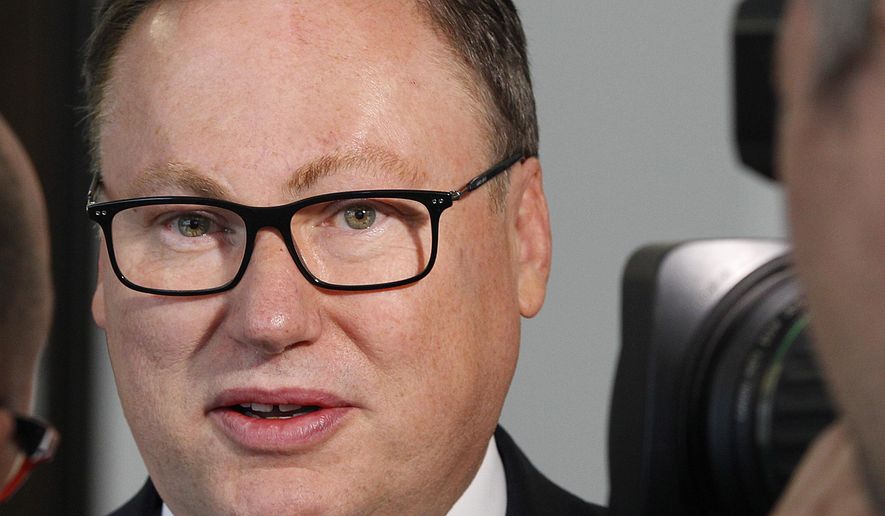WARSAW, Poland (AP) - A Polish senator who caused outrage by saying Poland should be “purged” of those “not worthy of belonging to our national community” said Thursday he is sorry if his words were taken the wrong way and that it is nonsense to think he plans any purges.
Grzegorz Bierecki made his controversial comments Wednesday during a ceremony in his eastern Polish constituency of Biala Podlaska on the ninth anniversary of a plane crash that killed the Polish president and 95 others.
“We will not stop until we have fully purged Poland of people who are not worthy of belonging to our national community,” Bierecki said. A clip of his words circulated on social media and drew condemnation.
Many of the critics of the ruling Law and Justice party, to which Bierecki belongs, said his language recalled that of fascists in the 1930s.
Bierecki is an influential financial backer of several pro-government media outlets that have shaped public discourse in recent years.
In an interview Thursday with the pro-government wPolityce news portal, Bierecki said his remarks were misunderstood, and dismissed the idea that he wants to purge some from the country as “obvious nonsense.”
Asked if he would apologize, Bierecki said: “I can say that I am very sorry that someone could interpret my words like that.”
He said he only meant that those responsible for the 2010 plane crash in Russia, which killed President Lech Kaczynski and 95 others, “should not perform public functions, should not be present in Polish politics.”
Many of the victims were members of the Law and Justice party, which is led by the late president’s surviving twin brother Jaroslaw Kaczynski. Some in the ruling party blame rival Donald Tusk, the prime minister at the time who is now a top EU leader, accusing him of failing to ensure the security of the presidential delegation.
A state investigation blamed mistakes made by inadequately trained pilots and Russian air traffic controllers in bad weather.
Earlier in the day, Lech Walesa, the anti-communist leader and former president, called Bierecki’s words “scandalous” and said parliamentary leaders and other state institutions responsible for guarding civil rights “should take appropriate disciplinary and legal steps.”
The head of the main opposition party, Grzegorz Schetyna, said: “Poland, to be proud and strong must not - cannot - be ’purged’ of anybody. The republic must be a home for all Poles!”
Rafal Pankowski, a sociologist who runs an anti-extremism organization, Never Again, said the use of such language is a global issue but of special relevance in Poland because nationalists have been pushing a narrow definition of Polishness through their influence on the authorities.
Poland was for centuries a multiethnic nation that was home to ethnic Poles, Ukrainians, Jews, Belarusians, Germans and others. The genocide of World War II and redrawing of borders after the war left it ethnically almost homogeneous.
“It’s about whether we see the national community as a closed unit based on blood, ethnicity, or religion, in this case Catholicism, as a marker of identity. Or do we want to subscribe to another understanding of Polish identity which is in line with the multicultural heritage of Poland?” Pankowski said.
“Bierecki claims the right to say who belongs to the national community and who doesn’t, and this is scary,” Pankowski said. “The exclusionary idea that labels people as traitors or enemies of the national community is a real concern.”
___
Monika Scislowska in Warsaw contributed to this report.




Please read our comment policy before commenting.